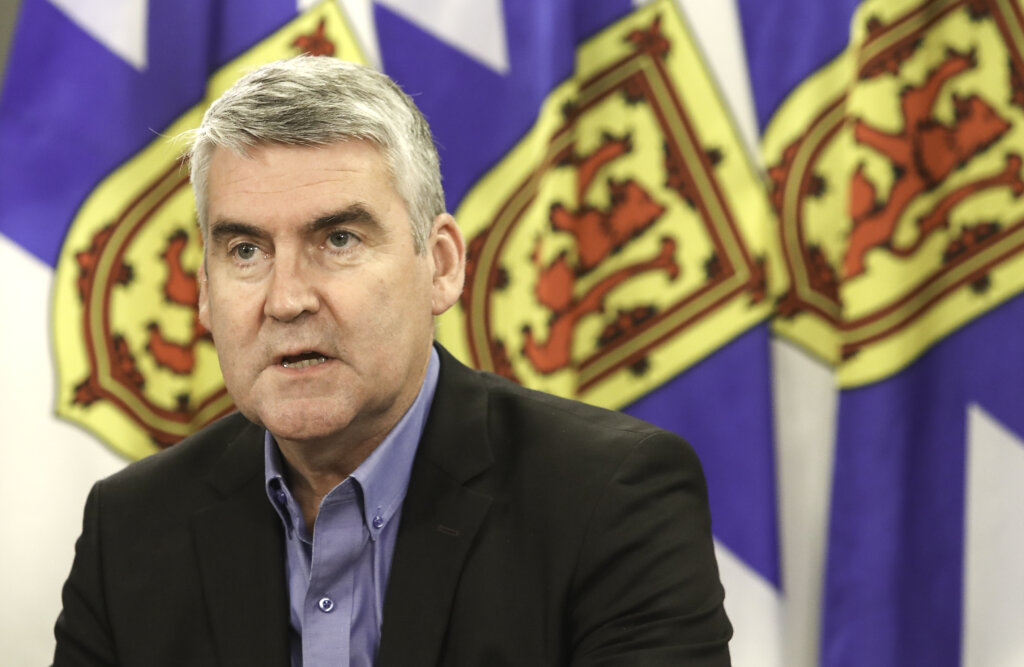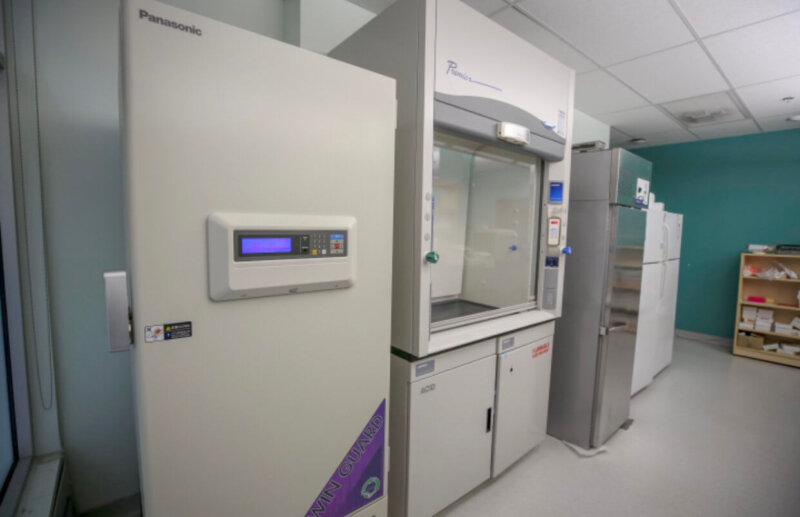MAIN PHOTO: The low temperature freezers for the COVID19 vaccine. (Communications N.S. Photo)
HALIFAX: Nova Scotia will receive its first allotment of 1950 doses of the Pfizer COVID-19 vaccine next week and will begin with immunizing health-care workers most directly involved in the COVID-19 response in Central Zone, as soon as the vaccine is approved by Health Canada.
Health-care workers to be immunized first include those working in COVID-19 care units, Regional Care Units and intensive care units that care for COVID-19 patients.
“We have all been waiting anxiously for a vaccine to arrive and I am very glad it will be here in province next week,” said Premier Stephen McNeil. “We want everyone to be vaccinated as quickly as possible, but we have to accept that the rollout will be gradual based on vaccine supply and we all want to make sure our most vulnerable are protected.”

The focus for December is Central Zone, as the Pfizer vaccine cannot be moved around the province given its strict storage, handling and transportation requirements. The Pfizer vaccine must be stored at minus 70 Celsius.
Doses of the Moderna vaccine are also expected to begin arriving this month. They must be stored at minus 20 degrees Celsius, which is like many other vaccines.
The province is expected to receive a total of 150,000 doses in small, weekly allotments beginning the week of Dec. 15 and into the first three months of 2021. The vaccine is administered in two doses.
Error, group does not exist! Check your syntax! (ID: 9)Like most other provinces, Nova Scotia is following the National Advisory Committee on Immunizations (NACI) guidance on COVID-19 vaccines. During the first three months of 2021, the focus will be to immunize:
— long-term care residents and staff
— seniors who live in the community beginning with those who are over 80 years of age, then people over 75 and then people over 70.
— health-care workers directly involved in patient care
“As our vaccine supply increases, we will turn our attention to immunize those at higher risk for severe disease due to underlying health conditions or socio-economic factors,” said Dr. Robert Strang, chief medical officer of health for Nova Scotia. “It is important that Nova Scotians understand that it will take months before there will be a vaccine for everyone.”
Nova Scotians are encouraged to be patient and continue to be vigilant in adhering to public health protocols until such a time they can receive their vaccine. This includes wearing a mask, maintaining two metres/six feet of physical distance from others, proper hand hygiene and adhering to gathering limits.































